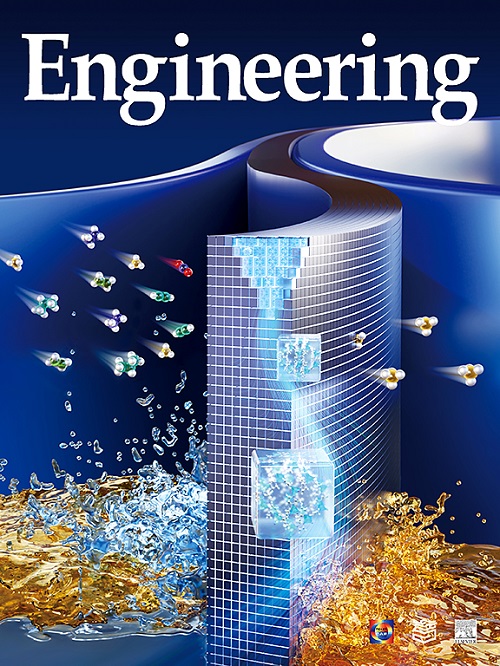Fortifying Renewable-Dominant Hybrid Microgrids: A Bi-Directional Converter Based Interconnection Planning Approach
IF 11.6
1区 工程技术
Q1 ENGINEERING, MULTIDISCIPLINARY
引用次数: 0
Abstract
Interconnection planning involving bi-directional converters (BdCs) is crucial for enhancing the reliability and robustness of hybrid alternating current (AC)/direct current (DC) microgrid clusters with high penetrations of renewable energy resources (RESs). However, challenges such as the non-convex nature of BdC efficiency and renewable energy uncertainty complicate the planning process. To address these issues, this paper proposes a tri-level BdC-based planning framework that incorporates dynamic BdC efficiency and a data-correlated uncertainty set (DcUS) derived from historical data patterns. The proposed framework employs a least-squares approximation to linearize BdC efficiency and constructs the DcUS to balance computational efficiency and solution robustness. Additionally, a fully parallel column and constraint generation algorithm is developed to solve the model efficiently. Numerical simulations on a practical hybrid AC/DC microgrid system demonstrate that the proposed method reduces interconnection costs by up to 21.8% compared to conventional uncertainty sets while ensuring robust operation under all considered scenarios. These results highlight the computational efficiency, robustness, and practicality of the proposed approach, making it a promising solution for modern power systems.
加强以可再生能源为主的混合微电网:一种基于双向变流器的互联规划方法
双向变流器(bdc)的互联规划对于提高具有高可再生能源渗透率(RESs)的混合交流(AC)/直流(DC)微电网集群的可靠性和鲁棒性至关重要。然而,诸如BdC效率的非凸性和可再生能源的不确定性等挑战使规划过程复杂化。为了解决这些问题,本文提出了一个基于BdC的三级规划框架,该框架结合了动态BdC效率和源自历史数据模式的数据相关不确定性集(dcu)。该框架采用最小二乘近似来线性化BdC效率,并构建dcu来平衡计算效率和解的鲁棒性。此外,提出了一种完全并行的列和约束生成算法,以有效地求解该模型。在一个实际的交直流混合微电网系统上的数值模拟表明,与传统的不确定性集相比,所提出的方法在保证所有考虑情景下的鲁棒运行的同时,可将互连成本降低高达21.8%。这些结果突出了该方法的计算效率、鲁棒性和实用性,使其成为现代电力系统的一个有前途的解决方案。
本文章由计算机程序翻译,如有差异,请以英文原文为准。
求助全文
约1分钟内获得全文
求助全文
来源期刊

Engineering
Environmental Science-Environmental Engineering
自引率
1.60%
发文量
335
审稿时长
35 days
期刊介绍:
Engineering, an international open-access journal initiated by the Chinese Academy of Engineering (CAE) in 2015, serves as a distinguished platform for disseminating cutting-edge advancements in engineering R&D, sharing major research outputs, and highlighting key achievements worldwide. The journal's objectives encompass reporting progress in engineering science, fostering discussions on hot topics, addressing areas of interest, challenges, and prospects in engineering development, while considering human and environmental well-being and ethics in engineering. It aims to inspire breakthroughs and innovations with profound economic and social significance, propelling them to advanced international standards and transforming them into a new productive force. Ultimately, this endeavor seeks to bring about positive changes globally, benefit humanity, and shape a new future.
 求助内容:
求助内容: 应助结果提醒方式:
应助结果提醒方式:


